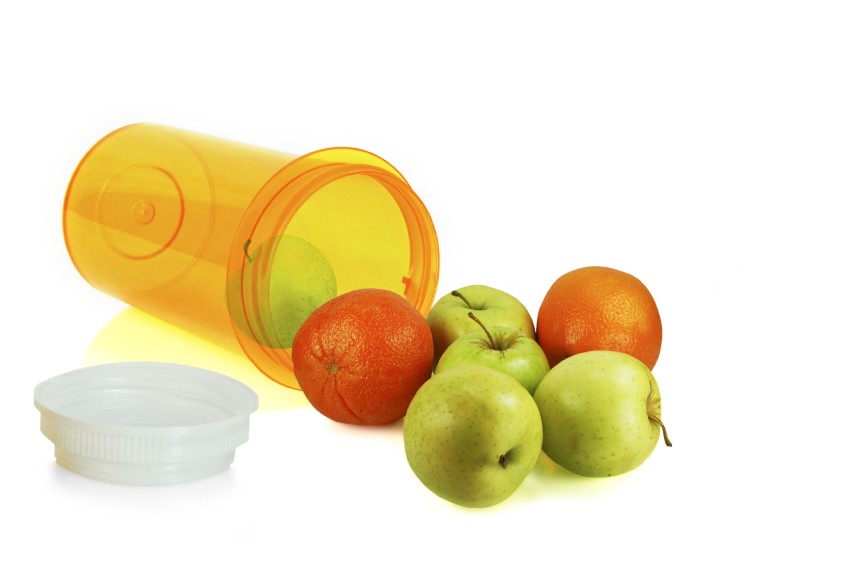With aging comes a greater risk of malnutrition, but there are ways to get back on the track to better health.
 |
| Good nutrition is critical to senior health. |
Malnutrition can begin with a medication or health problem that leads to decreased appetite or trouble eating. Other causes include dietary restrictions, alcoholism, or limited income and social contact. If you suspect a loved one isn’t getting good nutrition, observe his everyday eating habits and find out who buys his food. Look for signs such as poor wound healing, easy bruising, dental problems and weight loss evidenced by ill-fitting clothing. If untreated, malnutrition can lead to various health problems such as fatigue, depression, weakened immune system, anemia, poor skin integrity, and digestive, heart and lung problems. In addition, we know falls and fear of falling are responsible for up to 40 percent of nursing home admissions, and malnutrition can lead to muscle weakness, which in turn can lead to falls and fractures.
If you see evidence of malnutrition, take comfort in knowing that even small dietary changes can make a difference in your loved one’s health and well-being. Here are some tips for getting back on the right nutrition track:
Watch the video - how to recognize and prevent malnutrion in seniors
- Encourage nutrition-packed foods. Add nut butters to fruit or wheat crackers, wheat germ to cereal, and cheese to vegetables and soups. Keep nutritious, easy-to-eat snacks on hand, such as string cheese, yogurt, sliced fruit or nuts.
- Add flavor to bland foods. Because seniors often experience loss of taste and smell, or may have strict dietary restrictions, food may seem unappealing. Experiment with herbs, spices and lemon juice in recipes. Ask a dietitian for suggestions if needed.
- Make meals into social events. Eating alone isn’t as much fun as eating with others. Invite your loved one over for meals as often as possible, or visit her during mealtimes. Check if your area has senior programs where people can eat together.
- Consult your loved one’s health care providers. Ask for a nutrition screening during a routine visit, and find out whether she might benefit from supplements. Consult a dentist for oral problems.
- Enlist outside help. A home health aide can shop for groceries or prepare meals, and there are some registered dietitians who make home visits. Check whether Meals on Wheels or other not-for-profit community programs are available to deliver prepared meals in your area.
- Consider a healthy-meal home-delivery service. Services have come a long way and may offer freshly prepared fresh foods. Some, such as Mom's Meals, offer portion- and calorie-controlled meals, so you know your loved one is getting exactly what he needs daily and weekly. Home delivery is convenient, and the fresh meals (not frozen) are tasty. They offer 45 different meals and you can pick whatever you want. There is no set "meal plan". Following is more information...
According to a recent landmark study including more than 50,000 U.S. households, nearly 6 million seniors are at risk.
For many boomers who are now caregivers, home delivered meals provide peace of mind. While the frozen meals in stores may cheaper, they aren't necessarily nutritionally balanced and can contain high levels of sodium. Plus, they are frozen and a somewhat tasteless. People can quickly develop taste fatigue and not want to eat them.
 |
| Convenient home delivery - freshly prepared |
To Order Call 1-866-971-6667
Free Meal With First Order!
Call and mention "caregiver"
or
Order Online and enter code "caregiver"
About The CareGiver Partnership. The CareGiver Partnership helps caregivers and their loved ones with answers to their caregiving questions, including information about home health care products and supplies, from our Wisconsin-based team of Product Specialists who are all current or former caregivers. The company’s Web site provides the largest online library of resources on subjects most important to caregivers — from arthritis to assisted living, and Parkinson’s to prostate cancer — as well as access to more than 3,000 home care products for incontinence, skin care, mobility, home safety and daily living aids. The CareGiver Partnership was founded in 2004 by Lynn Wilson of Neenah, Wis. Visit http://www.caregiverpartnership.com/ to learn more or call 1-800-985-1353.








0 comments:
Post a Comment